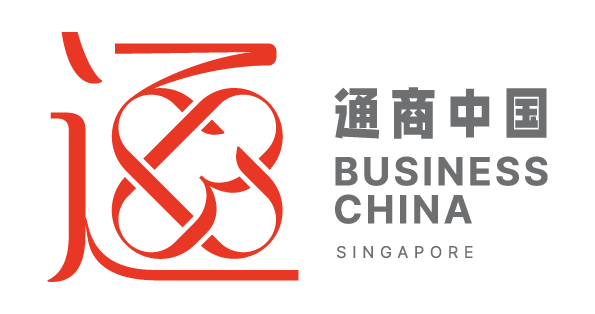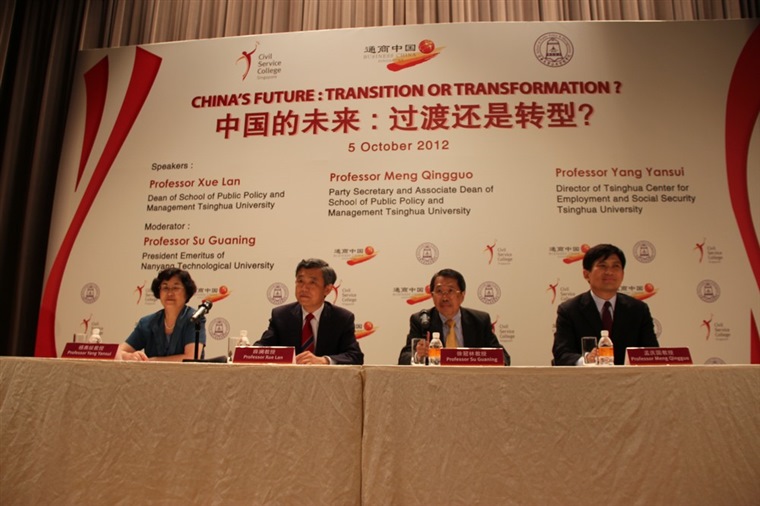On 5 Oct (Friday), Business China, together with Tsinghua University, School of Public Policy and Management (SPPM), and the Civil Service College, co-organised a symposium entitled “China’s Future: Transition or Transformation?”. Three professors from Tsinghua SPPM, namely Professor Xue Lan, Dean, Professor Meng Qingguo, Associate Dean, and Professor Yang Yansui, Director of Tsinghua-Brookings Center for Employment and Social Security, spoke about the reform of China’s public policies and the future trajectory of China’s economic and social developments. A 500-strong audience, including Business China Board of Directors, APEX members, leaders from the local Chinese community, Business China members and members of the public, attended the forum.
The enthusiastic turnout may be a reflection of the level of concern over the impending 18th CPC National Congress. Each and every move by China, the world’s 2nd largest economy, has been closely beheld by the rest of the world.
Professor Xue Lan kick-started by giving the audience a review of China’s economic, social and political development. He shared that China has gone through four major stages of transformations since 1979. Starting with a planned economy, the industrial structure was focusing on agriculture but gradually shifted to a market-driven economy with manufacturing and now, services as its focuses. China’s society has also moved from being closed and rural to being an open urbanised one. The governing CPC, while closely guarding political status-quo, has also moved from an authoritarian one to adopt a more service-oriented approach. With regards to possible future strategies, Professor Xue suggested building social consensus, improving regulatory and executionary efforts, continuing reforms, and improving the governance system.
Professor Meng Qingguo next shared with the audience the evolution of the Chinese government over the years. Starting with a political orientation, the government became economically oriented but realised that they were beginning to lose social welfare protection for the people. Professor Meng rounded off his session by talking about the innovation of Chinese policy tools. The modern management tools have moved to one which makes use of social tools, marketing tools, economic management and information.
Professor Yang Yansui followed next to share a detailed analysis of China’s aging population. Professor Yang pointed out that China had already become an “intensely aging” society in 2010. By 2030, up to 20% of the population in China would be above 65 years old, turning the country into a “super aging” society. However, one huge social challenge present in the country was that of being “aged and poor”. Professor Yang mentioned the CPF scheme in Singapore as one of the good examples of a sound social security system.
Professor Su Guanning, President Emeritus of Nanyang Technological University and Business China Board of Director, was the moderator for the question and answer session. The session was met with overwhelming responses from the audience and the speakers in turn, were impressed with the nature and quality of the questions.
At the end of the Symposium, Ms Low Yen Ling, Business China’s CEO stated that, “As the economic centre of gravity moves to the East, leaders of the future will be distinguished by their deep understanding of China and if they have the necessary ‘China quotient’.” Ms Low also expressed her gratitude to the Civil Service College for the opportunity to co-organise this symposium, aimed at strengthening and deepening bilateral ties with China, once again.
The Symposium concluded to rave reviews with the purpose of enhancing Singaporean’s knowledge of contemporary China issues well fulfilled.

